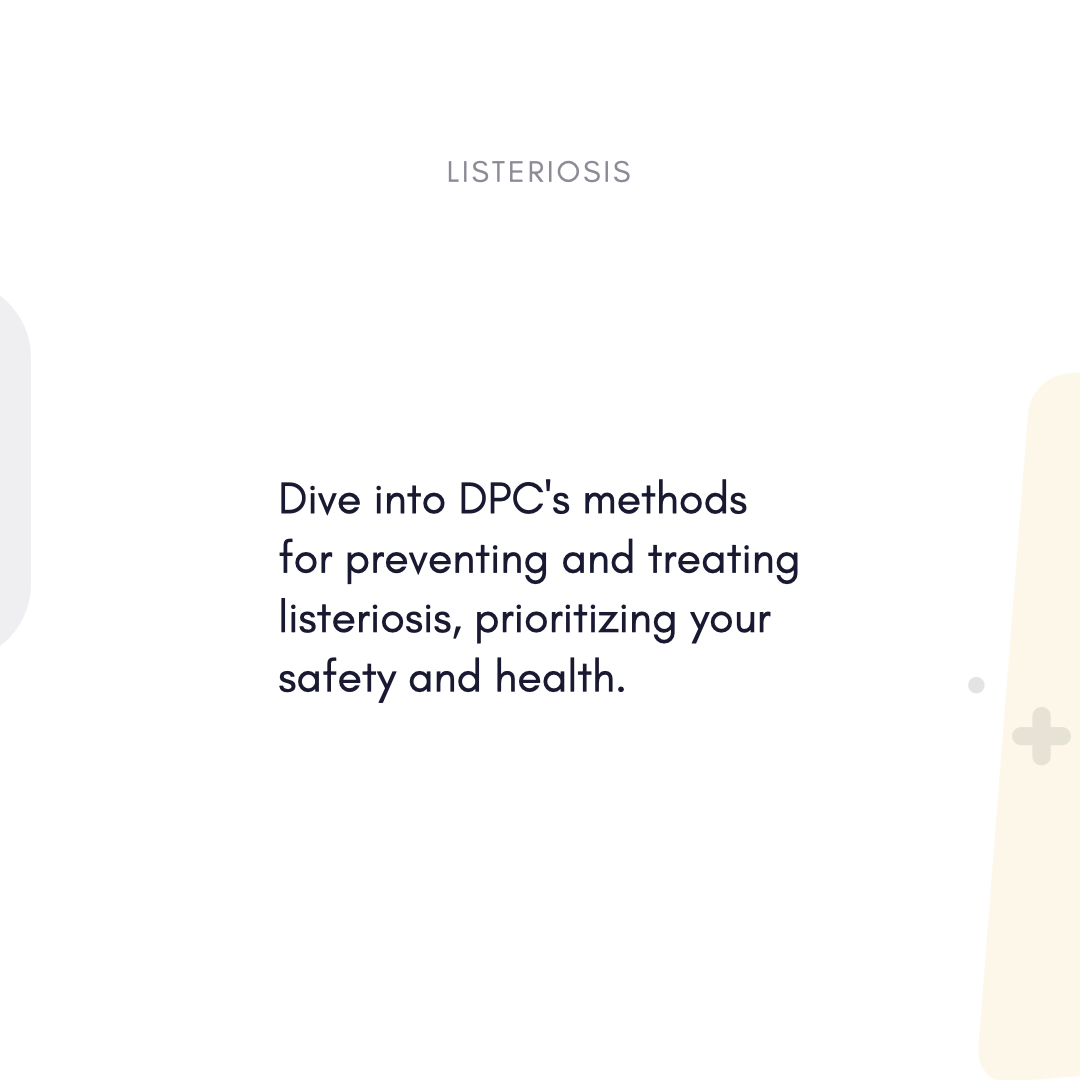Listeriosis and Direct Primary Care (DPC): Rapid, Personalized Care for a Dangerous Infection
You know the anxiety listeriosis brings if you’ve ever worried about food poisoning turning deadly—especially during pregnancy or while immunocompromised. Listeria monocytogenes causes this rare but lethal bacterial infection, which kills 20–30% of infected individuals. High-risk groups include pregnant women, newborns, and the elderly. Direct Primary Care (DPC) offers a lifeline: rapid access to testing, targeted antibiotics, and preventive counseling—free of insurance delays.

Understanding Listeriosis
Listeriosis is a foodborne illness often linked to contaminated deli meats, soft cheeses, and raw vegetables. Key risks include:
- Pregnancy: 20x higher risk; may lead to stillbirth, miscarriage, or newborn sepsis.
- Immunocompromised states: Organ transplants, diabetes, or cancer increase vulnerability.
- Age: Adults over 65 face higher meningitis or septicemia risk.
Symptoms needing urgent attention:
- Fever, muscle aches, nausea, or vomiting.
- Confusion, stiff neck, or seizures (CNS involvement).
- Flu-like symptoms in expectant mothers (mild but harmful to the fetus).
Delayed treatment risks:
- Meningitis causing neurological damage.
- Lifelong disabilities in surviving infants or pregnancy loss.
How DPC Transforms Listeriosis Management
Under the membership model known as Direct Primary Care (DPC), patients pay a monthly fee—usually USD 50–USD 150—for unlimited access to their doctor. For listeriosis sufferers, this means:
- Care tailored to your risk level.
- No surprise bills.
- No waiting for critical antibiotics.
1. Rapid Diagnosis and Treatment Anchored in CDC Guidelines
DPC providers offer:
- Same-day testing: Blood or cerebrospinal fluid (CSF) cultures at transparent cash rates.
- Immediate antibiotics for high-risk cases: IV/oral ampicillin plus gentamicin.
- Pregnancy-specific care: Fetal monitoring and urgent OB/GYN referrals.
2. Preventive Monitoring and Symptom Tracking
DPC ensures:
- Dietary guidance: Avoid high-risk foods (deli salads, unpasteurized dairy).
- Symptom tracking apps: Log real-time fever patterns or neurological changes.
- Post-treatment follow-up: Confirm infection clearance and screen for complications.
3. Cost-Effective, Transparent Care
DPC clinics reduce expenses by:
- Discounted labs: Blood cultures for USD 50–USD 100 vs. USD 300+ in traditional settings.
- Low-cost medications: Generic antibiotics (e.g., ampicillin) at near-wholesale pricing.
- 24/7 access: Call or text providers for sudden fever spikes after hours.
Key DPC Advantages for Listeriosis Patients
- Same-day intervention: Start antibiotics within hours of symptom onset.
- Cost clarity: Avoid USD 1,000+ ER bills for urgent care.
- Risk-specific plans: Customized prevention for immunocompromised or pregnant patients.
DPC’s Personalized Listeriosis Management
DPC adapts care to your unique needs:
- High-Risk Patient Strategies:
- Pregnancy care: Biweekly visits and urgent OB referrals for fever or contractions.
- Adjust immunosuppressants (e.g., steroids) during outbreaks.
- Customized "Listeria-safe" meal plans for foodies or travelers.
- Acute Infection Control:
- Home IV therapy for stable patients to prevent hospitalization.
- Cognitive tests to monitor confusion or headache progression.
- Family screening to trace contaminated food sources.
- Long-Term Wellness Protection:
- Probiotics post-antibiotics to restore gut balance.
- Vaccine advocacy: Updates on Listeria vaccines in clinical trials.
- Food safety partnerships: Dietitians for kitchen hygiene training.
Real-Life Success Stories
- Case 1: Sophie, 29 (24 weeks pregnant), began antibiotics 2 hours after her DPC doctor diagnosed listeriosis from a single fever spike—avoiding stillbirth.
- Case 2: Henry, 72 (on chemo), avoided the ER for home IV ampicillin—saving USD 8,000 and reducing infection risk.
Frequently Asked Questions: DPC and Listeriosis
- Q: Can listeriosis be fatal?
A: Yes—without quick antibiotics, 20–30% of cases are lethal. DPC’s rapid response lowers this risk.
- Q: Is DPC affordable for pregnant patients?
A: Absolutely! Prenatal monitoring and urgent consultations are included in flat monthly rates.
- Q: If a specialist is needed, what then?
A: DPC doctors schedule discounted infectious disease or neurology referrals within hours.
Why DPC Wins for Listeriosis Patients
DPC’s direct model is vital for listeriosis by:
- Speed: Every delayed hour raises meningitis/sepsis risk—DPC’s quick access saves lives.
- Preventive focus: Teach high-risk patients to avoid outbreaks before they start.
- Cost stability: Prevent ER or ICU bills that can bankrupt families.
Act Fast, Stay Safe with DPC
Listeriosis need not lead to disaster. DPC empowers you to outsmart this stealthy infection with a partner offering urgent antibiotics, tailored prevention, and financial clarity.
- From pregnancy safeguards to post-recovery monitoring, DPC guards against Listeria’s dangers.
- Transparent pricing—no hidden fees or insurance mark-ups.
- 24/7 access to adjust treatment during sudden neurological symptoms.






